
Richie Kotzen's top 5 tips for guitarists
Richie Kotzen knows all about hitting creative brick walls. Eight years ago, while on tour in South America, he felt as though he were on auto-pilot. "I had a really bad couple of shows, at least they were bad by my estimation," he says. "I didn’t feel inspired; everything sounded like I was just regurgitating the same nonsense. No matter what I did, I was just falling short of where I wanted to be."
Kotzen knew that he had to try to shake things up, so he did something radical – he ditched his pick. "I’d done little things with fingerpicking, but I never played a whole show like that," he says. "I went on stage without a pick just to see what would happen. You could say I was out of my comfort zone."
Immediately, Kotzen eliminated a few things technical elements from his repertoire. Alternate picking went out the window; the same with sweep picking. "Two big parts of my sound – gone just like that," he says. “I was kind of handicapping myself in a way, but I found that when I went into a solo, I was connecting more with the instrument. My phrasing changed, I slowed down a little bit, and even my tone changed.
"It was cool, so I decided to follow that thread," he continues. "And now, years later, I’ve developed a whole new skill set on the instrument, and I’m able to bring back some of the things I lost. I found a way to execute some of the sweep picking things I couldn’t do; the alternate picking sound is coming back because I’m utilizing my fingers in a way that I never did. The whole experiment really paid off. So there's kind of a tip that I discovered on my own: If you're uninspired and in a rut, get out of your comfort zone."
On the following pages, Kotzen runs down five more tips for guitarists. You can purchase the recently released The Richie Kotzen Collection on iTunes. And catch Kotzen on tour in the US – dates and information are at Richie Kotzen's website.
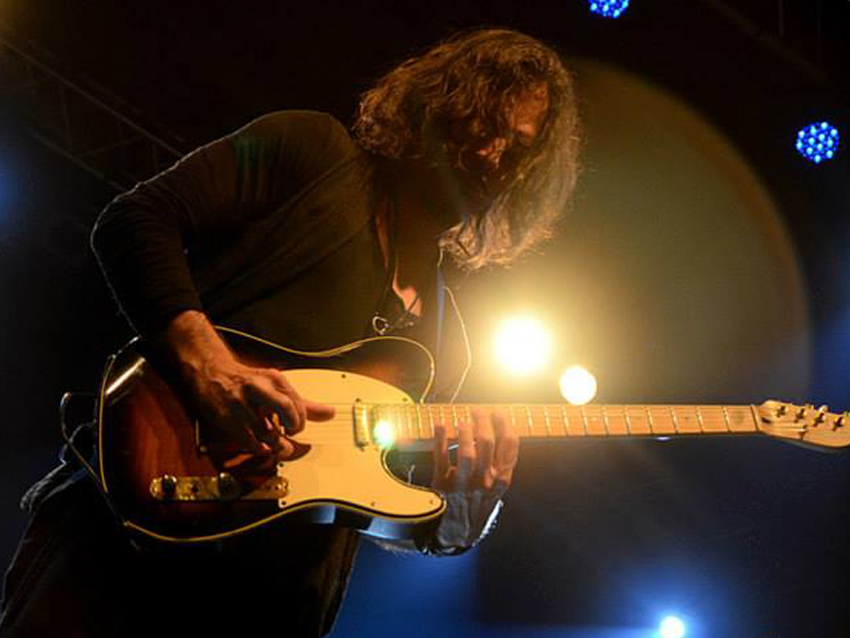
Build a foundation of knowledge of the instrument
“I know it’s tempting to just want to plug in and let it rip, but you’re only going to get so far unless you really learn the basics of music. I recommend learning what the notes on the guitar are, particularly how they relate to one another and fit together to form chords.
“It’s good when you’re starting out to find an instructor who can teach you all about harmony. A lot of guys can do it on their own, but I think you can understand things better if you sit down with somebody who can show you how it all works, breaking things down on the neck of the guitar bit by bit.
“In the very beginning, I made it a point to learn theory and where the notes are on the fretboard – what they are and what they sound like. I couldn’t imagine being able to play without having learned the fundamentals of music. And before you know it, you don’t have to think about it. It becomes second nature, like knowing the alphabet.”
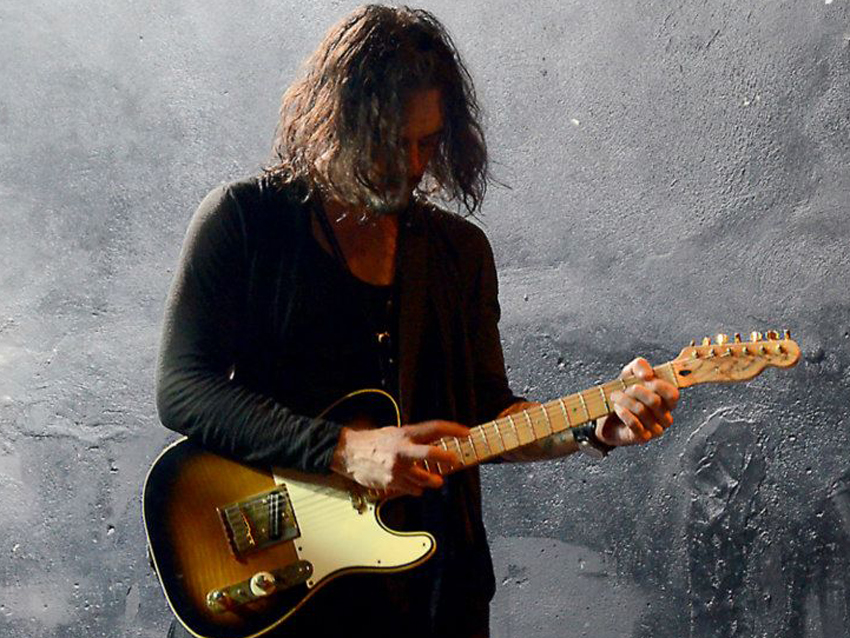
Find other people to play with
“Once you have that foundation of knowledge, now you’re ready to make some music, and a good step in that direction would be to find other people to play with. They don’t have to be virtuosos, just people with a common interest in the style that you want to play.
“Playing with other people will teach you so much about music. For me, the whole act of setting up in a garage with a bunch of other guys and learning how to play cover songs put me on a whole new level of ability. Music is a conversation between notes, and I found that my ear developed quite quickly when I was playing with other people. You have to listen and react, plus you get to make mistakes and see other guys screw things up. That's OK, because learning how to recover and play on through will come in handy when you're ready to perform in front of people."
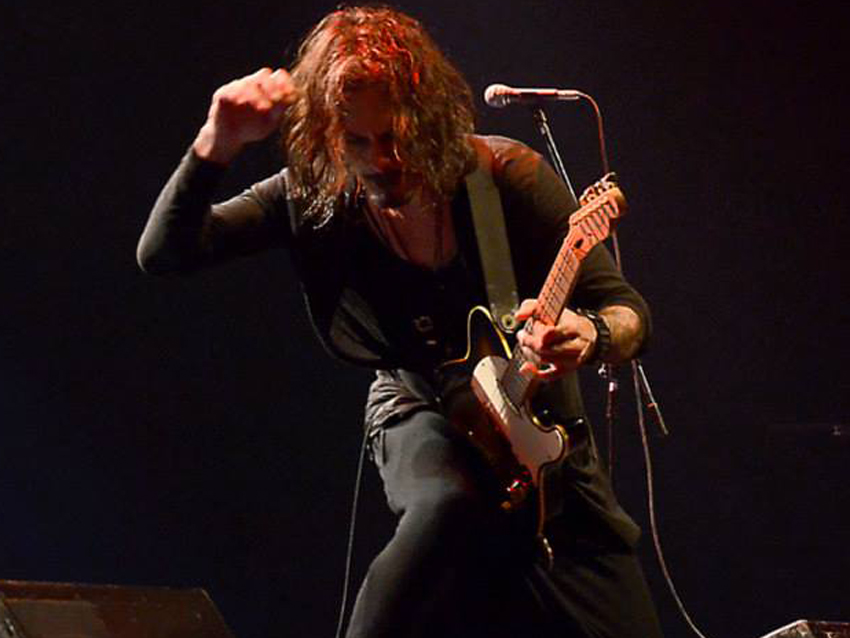
Get on stage
“Once you and your buddies have played in the garage and have gotten some songs together, you might want to think about performing in front of people. That’s a whole different animal altogether. Playing in your bedroom or doing the garage thing is cool, but you won’t really know what you’ve got until you get on stage.
“Dealing with an audience and learning how to feel comfortable on stage will speed up your growth as a musician in ways that you won't believe. You’ll see what works, what doesn’t – the learning curve can be pretty steep in a live setting.
“Personally, the performance thing felt very comfortable to me right off the bat, but I started doing it when I was pretty young – I was in a full-time bar band by the time I was 15. Other guys start later, and it might take them a while to feel right on stage. That’s OK. Don’t be afraid to fail, fall on your face, have off-nights, whatever – we all go through it.”
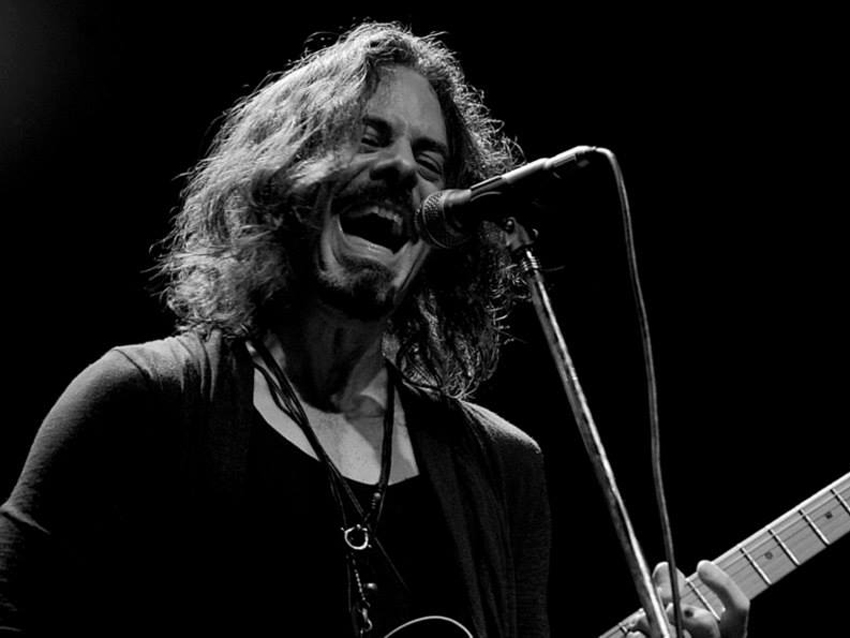
Don't try to be too diverse
“I know that might sound weird, because obviously you should branch out and expose yourself to lots of different styles of music. But when it comes to playing your own music, don’t feel as though you have to be great at everything. Focus on what really moves you musically.
“If you love hard rock and that’s your thing, embrace it. Play that music and follow that thread and listen to guys who inspire you. If you love jazz, then do the same thing. Go with it. When you’re inspired and excited, that’s when you’re gonna play the best. It’s also how you’ll start to develop your own style within a certain genre.
“A lot of guys feel as though they have to learn every style under the sun. Again, I’m not saying to limit your scope – definitely expose yourself to as much as you can – but don’t water down your own music or your own personal style by trying to be so spread out. You might be able to play a little jazz, and you might be able to play some country, and you might even know a few flamenco licks, but you’ll never be as good as guys who spent their whole lives playing that stuff.
“I’ll use myself as an example: I’m considered a rock guitar player, but I have various influences. I have a strong R&B influence and an older classic rock thing. That’s kind of the barometer I swing between, but it’s part of what defines my sound today. I love flamenco and I know a couple of licks, but I would never consider myself that kind of player. So because of the path I took, I developed my own voice and my own sound on the instrument. You just have to trust your instincts and follow your gut.”
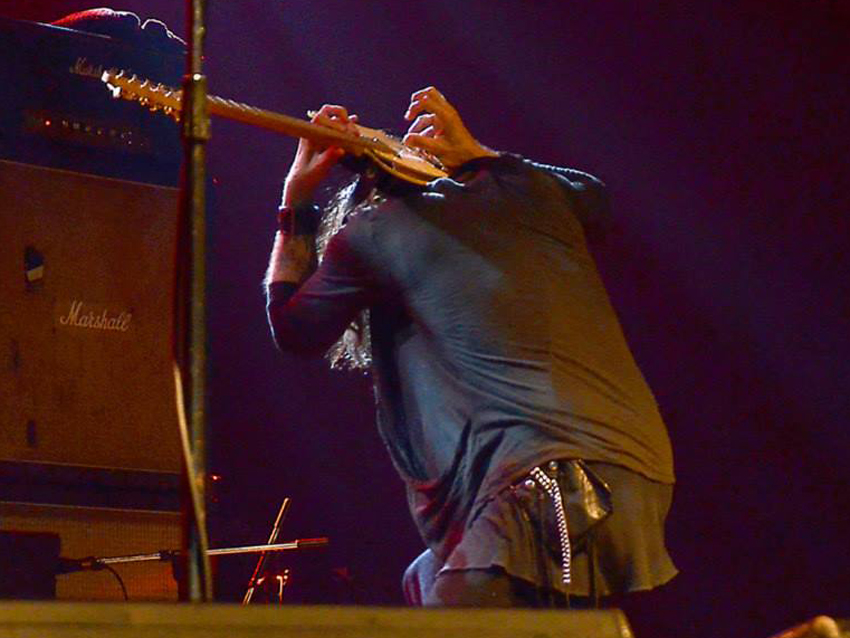
Understand why you play the instrument
“The immersion in the creative process is why I play the guitar. The instrument itself is a bridge between me the person and the music that people actually hear. So it’s not about trying to master a certain genre or a specific lick or anything like that; it’s about the expression itself.
“Creativity isn't really something that can be measured, because it's felt. It’s not like sports, where you can be the best at something; you can score the highest number of goals or get the fastest time. The concept of ‘best’ doesn’t exist in my opinion of music, because it’s an art form.
“So if you play the guitar, that’s great, but try to think about why you play the guitar. Is it just because you want to peel off some licks, or is there a bigger purpose driving you? For me, the guitar is a vehicle for expression and creativity, and it’s what connects my emotions to a place where the listener can hear that as music and relate to it.”
Joe is a freelance journalist who has, over the past few decades, interviewed hundreds of guitarists for Guitar World, Guitar Player, MusicRadar and Classic Rock. He is also a former editor of Guitar World, contributing writer for Guitar Aficionado and VP of A&R for Island Records. He’s an enthusiastic guitarist, but he’s nowhere near the likes of the people he interviews. Surprisingly, his skills are more suited to the drums. If you need a drummer for your Beatles tribute band, look him up.
